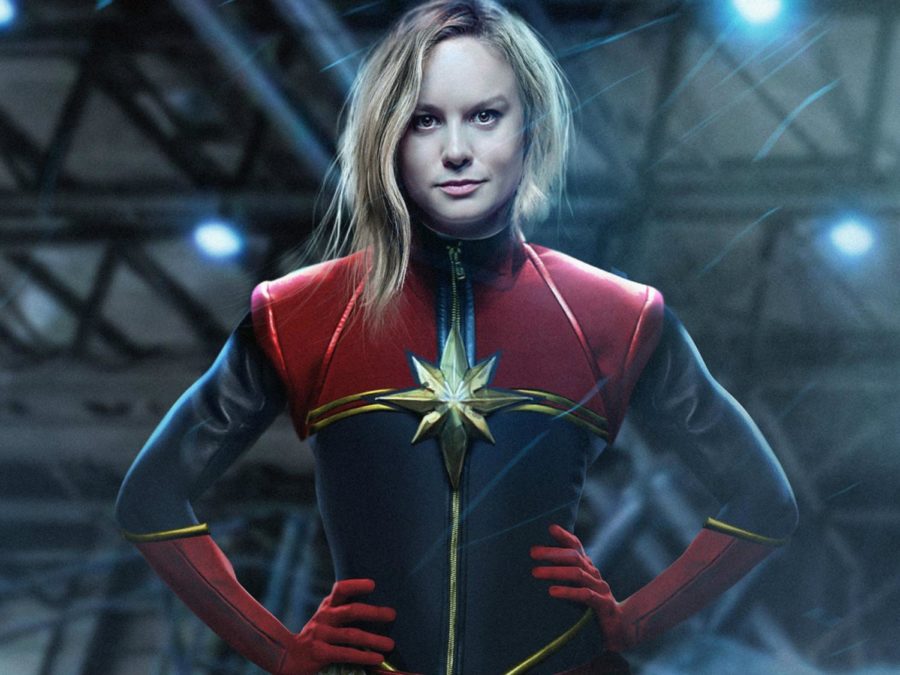Captain Marvel breaks the glass ceiling of theaters
Brie Larson as Carol Danvers a.k.a. Captain Marvel.
March 28, 2019
After an interminable seven month long wait, the Marvel Cinematic Universe has returned with a bang ─ or, if you prefer, a photon blast ─ with the much-anticipated arrival of the MCU’s first female-led film, Captain Marvel.
The adage “with great power comes great responsibility” could be the MCU’s motto. This latest installment in the beloved saga had the unique challenge of fulfilling two contrary roles. Firstly, it had to capture viewers’ hearts in yet another compelling origin story. Secondly, it had to tie up some loose ends generated by the climax of the MCU’s first three phases: 2018’s blockbuster Infinity War.
Compared to the MCU’s other franchise-launching movies such as Iron Man or Spiderman: Homecoming, Captain Marvel was somewhat of a disappointment. Relating to this new character was no easy task; biting sarcasm paired with deadpan expressions seem to be her trademark. Perhaps this is a shield against vulnerability, but if so then Captain Marvel still remains an enigma to her audience.
What ends up saving the character is the fact that theater-goers aren’t alone in their confusion about Captain Marvel’s identity; Carol herself is bewildered as well. She doesn’t realize who she is or understand what she’s supposed to do until nearly the conclusion of the movie. But Marvel Studios has proven itself capable of “rescuing” previously unlikeable characters in its earlier movies (a key example being Thor’s transformation from The Dark World to Ragnarok), so there is always room for Carol to grow as a character and capture viewers’ hearts in the future. In any case, women’s representation in the superhero realm on the silver screen is empowering. Like Black Panther, Captain Marvel is an important landmark film in terms of representation.
The other and more significant problem is that Carol never seems to fail as she faces various obstacles. Marvel superheroes became popular because they were flawed and therefore still human in spite of their larger-than-life abilities. In this sense, Captain Marvel is not a true Marvel superhero. Viewers are never worried about her safety or the possibility that she won’t succeed because she is completely overpowered.
As a solo film, this is weak. However, taken in the context of the larger narrative, it might make sense. Maybe Captain Marvel isn’t supposed to face any true threat until she meets her match in April’s Avengers: Endgame. If she struggled against a much smaller and less intimidating enemy in her first movie, would we really believe that she had any more of a chance against Thanos than the other Avengers? Carol may be OP, but so is Thanos. They are equals, and everyone can agree that a battle of equals is far more gripping than a fight between opponents of vastly different skill.
While Carol Danvers herself was a bit lackluster, the reveal of the backstory of Nick Fury and the rise of the Avengers Initiative was not. I personally enjoyed seeing all the different plot threads come together. Ultimately, one could argue that Captain Marvel wasn’t so much Carol Danver’s origin story as the origin story of the Avengers as a whole: An appropriate prologue to increase our anticipation for Endgame.



